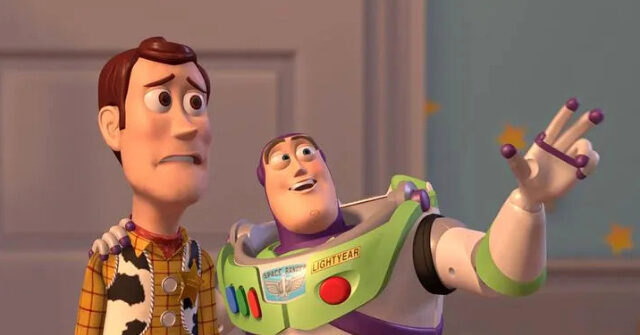The founder of a powerful artificial intelligence system that could be set to replace human workers in the entertainment industry is predicting a “radically different” world for content creation thanks to the introduction of AI tools.
In a recent interview with The Ankler, the co-founder of the generative AI system Runway, Cristóbal Valenzuela, said AI will completely change the way music, TV, streaming, and movies are made, and it will happen in the next few years, not in the far-flung future.
Valenzuela’s system is already being used by several top studios and is set to be adopted by most of the rest, he told Ankler’s Erik Barmack.
Already Lionsgate, AMC, Netflix, and Disney have inked deals to use Valenzuela’s system to create a long range of graphics including storyboarding, special effects, backgrounds, and actor emulation. Ankler notes that “Runway keeps moving, introducing in late July its newest model, Aleph, which can remove people and items from scenes, generate new camera angles, transform objects in a scene and more.”
But Valenzuela did not seem much interested in the ethical implications of the use of AI. These computer systems are not “creative,” of course. They learn by digesting past human designs and learning ways to morph that input to new use. That necessarily means that the work of people are being repurposed, which calls into question just how far copyrighted content can be protected from serving as the learning blocks of AI.
Valenzuela, though, felt that the onus for abusing AI is on the users, not the creators, of the AI systems. Indeed, when asked about the issue, Valenzuela denied there was even a proper definition of “ethical AI.”
“I don’t think anyone has a clear definition of what that term means,” Valenzuela insisted as he waived off the question of ethics in AI before putting most of the focus on users.
“You should give powerful technologies to people, and people should find safe ways of using them,” he continued. “They should find responsible ways of using them. You can do a lot of damage with your car and get in trouble with your car, but the responsibility is on the driver. The driver needs to be aware of the vehicle that you’re driving and how to drive it safely.”
Continuing to deploy his automobile analogy, Venezuela insisted that the driver is the one in trouble if he drives drunk, not the car manufacturer.
“This is a very powerful technology. It’s a very powerful vehicle. It’s one of the most incredible, exciting, creative technologies ever. And you take the responsibility about how to use it,” he insisted.
He also worried that government will stifle innovation if there is “too much regulation.”
“My concern is too much regulation, too early will stifle innovation. I think it’s too early,” he said, “like most of the stuff that people have been working on and building and shifting, I mean, our beta models are two years old. Before that, there wasn’t any such thing as a video model out there. So I think you want to be thoughtful and careful of just stopping innovation altogether.”
These powerful AI tools have already been predicted to permanently eliminate up to 200,000 jobs in the entertainment industry. And these are jobs that simply won’t come back.
Valenzuela hinted at how his tools are making vast changes in the industry. As an example, the entrepreneur noted that animation will go from weeks to complete to minutes.
“Can we provide tools for an animator being able to animate a character in 10 seconds instead of a week?” he exclaimed. “There’s no [turning] back. I can’t tell you the amount of people, animators, people who have reached out, being excited about having a weekend, because if you work in the industry, you’ve seen how hard it is and how much time it requires, how long it takes you to do every single thing because you do it by hand.”
What Valenzuela didn’t say is that this will necessarily eliminate human animators by the thousands. It currently takes teams of artists toiling for months to create a single cartoon or animated series episode. But if Runway can do it in ten minutes, all an animated series will need is a producer or writer to prompt the computer to create the animation and maybe a human designer to create the style that the project will need as a basis. The ranks of day-to-day animators will become obsolete.
Still, Valenzuela is 100 percent correct about the impact AI will have and is already having on the industry.
The Runway creator said that adopting AI is a “make-or-break moment for many. This is a time that may make many companies obsolete or make many companies innovate and just become better and better at doing what they’re doing, and no one was really paying attention to AI because it wasn’t within the realm of what was possible or imaginable that you could do this stuff that we can do now.”
As far as Venezuela is concerned, it is jump on the AI train, or get run over by it, regardless of any ethics involved.
Follow Warner Todd Huston on Facebook at: facebook.com/Warner.Todd.Huston, X at WTHuston, or Truth Social at @WarnerToddHuston.
Read the full article here


